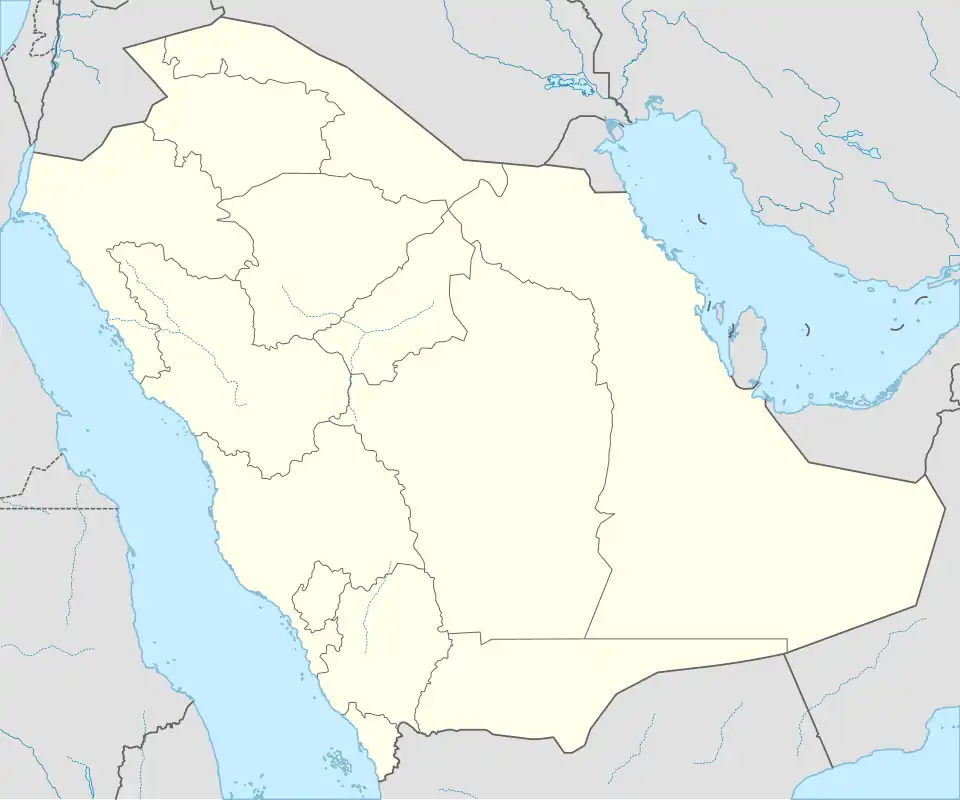2025 AFC U-17 Asian Cup| كأس آسيا تحت 17 سنة 2025 |
|---|
 |
|
| Host country | Saudi Arabia |
|---|
| Dates | 3–20 April |
|---|
| Teams | 16 (from 1 confederation) |
|---|
| Venue(s) | 4 (in 2 host cities) |
|---|
|
| Champions | 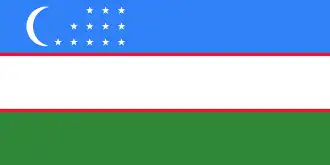 Uzbekistan (2nd title) Uzbekistan (2nd title) |
|---|
| Runners-up |  Saudi Arabia Saudi Arabia |
|---|
|
| Matches played | 31 |
|---|
| Goals scored | 101 (3.26 per match) |
|---|
| Top scorer(s) |  Asilbek Aliev Asilbek Aliev
(5 goals) |
|---|
| Best player(s) |  Sadriddin Khasanov Sadriddin Khasanov |
|---|
| Best goalkeeper |  Nematulloh Rustamjonov Nematulloh Rustamjonov |
|---|
| Fair play award |  Saudi Arabia Saudi Arabia |
|---|
|
The 2025 AFC U-17 Asian Cup was the 20th edition of the AFC U-17 Asian Cup (including previous editions of the AFC U-16 Championship and AFC U-17 Championship), the biennial international youth football championship organised by the Asian Football Confederation (AFC) for the men's under-17 national teams of Asia.
On 24 May 2024, the AFC announced that Saudi Arabia would host the tournament.[1] It was the first of the four consecutive AFC U-17 Asian Cup held in Saudi Arabia, preceding the 2026, 2027 and 2028 tournament, which also held in Saudi Arabia.
A total of 16 teams played in the tournament. The top eight teams of the tournament (=all quarter-finalists) qualified for the 2025 FIFA U-17 World Cup in Qatar as the AFC representatives, besides Qatar who qualified automatically as the host.[2]
Japan were the title holders, having won their fourth title in 2023. They were eliminated in the quarter-finals by Saudi Arabia. Saudi Arabia then lost the final to Uzbekistan, who also defeated them in the group stage, despite the latter having two players dismissed in the first half.
Qualification
Qualification matches were played between 19 and 27 October 2024.[3]
Qualified teams
A total of 16 teams including hosts Saudi Arabia qualified for the final tournament.
| Team[4]
|
Qualified as
|
Appearance
|
Previous best performance
|
 Saudi Arabia Saudi Arabia |
Hosts |
12th |
Champions (1985, 1988)
|
 North Korea North Korea |
Group A winners |
12th |
Champions (2010, 2014)
|
.svg.png) Afghanistan Afghanistan |
Group B winners |
3rd |
Group stage (2018, 2023)
|
 South Korea South Korea |
Group C winners |
16th |
Champions (1986, 2002)
|
 Thailand Thailand |
Group D winners |
13th |
Champions (1998)
|
 Uzbekistan Uzbekistan |
Group E winners |
11th |
Champions (2012)
|
 Japan Japan |
Group F winners |
17th |
Champions (1994, 2006, 2018, 2023)
|
.svg.png) Australia Australia |
Group G winners |
8th |
Semi-finals (2010, 2014, 2018)
|
 United Arab Emirates United Arab Emirates |
Group H winners |
8th |
Runners-up (1990)
|
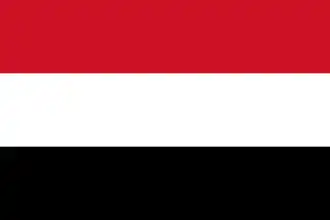 Yemen Yemen |
Group I winners |
8th |
Runners-up (2002)
|
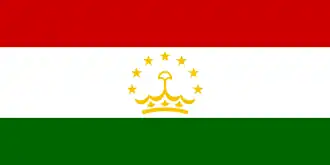 Tajikistan Tajikistan |
Group J winners |
5th |
Runners-up (2018)
|
 China China |
Best runners-up |
16th |
Champions (1992, 2004)
|
 Vietnam Vietnam |
2nd best runners-up |
9th |
Fourth place (2000)
|
 Indonesia Indonesia |
3rd best runners-up |
7th |
Fourth place (1990)
|
 Iran Iran |
4th best runners-up |
13th |
Champions (2008)
|
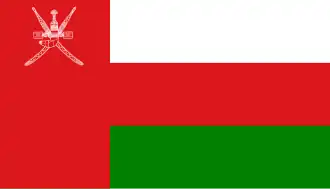 Oman Oman |
5th best runners-up |
11th |
Champions (1996, 2000)
|
1 Bold indicates champions for that year. Italic indicates hosts for that year.
Venues
Four stadiums in two host cities were used for the tournament.
Match officials
- Referees
.svg.png) Daniel Elder
Daniel Elder Dong Fangyu
Dong Fangyu Jin Jingyuan
Jin Jingyuan Venkatesh Ramachandran
Venkatesh Ramachandran Morteza Mansourian
Morteza Mansourian Koki Nagamine
Koki Nagamine Mahmoud Al-Sawalmeh
Mahmoud Al-Sawalmeh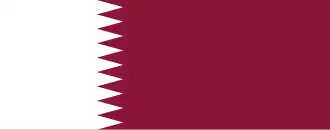 Mohammed Al-Shammari
Mohammed Al-Shammari Faisal Al-Balawi
Faisal Al-Balawi Kim Yu-jeong
Kim Yu-jeong Abdullo Davlatov
Abdullo Davlatov Torphong Somsing
Torphong Somsing
- Assistant referees
.svg.png) Andrew Meimarakis
Andrew Meimarakis Bao Mengxiao
Bao Mengxiao Wu Mingfeng
Wu Mingfeng Lam Nai Kei Sam
Lam Nai Kei Sam Vairamuthu Parasuraman
Vairamuthu Parasuraman Alireza Moradi
Alireza Moradi Isao Nishihashi
Isao Nishihashi Hamza Sa'Adeh
Hamza Sa'Adeh Ali Alachkar
Ali Alachkar Muhammad Farhan Bin Abdul Aziz
Muhammad Farhan Bin Abdul Aziz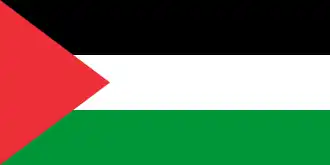 Ashraf Abuzubaida
Ashraf Abuzubaida Yousuf Al-Shamari
Yousuf Al-Shamari Faisal Al-Qahtani
Faisal Al-Qahtani Ibrahim Al-Dakhil
Ibrahim Al-Dakhil.svg.png) Kuo Chan-yu
Kuo Chan-yu Vafo Karaev
Vafo Karaev Nuannid Dornjangreed
Nuannid Dornjangreed
Draw
The draw of the final tournament was held on 23 January 2025 at the AFC House in Kuala Lumpur, Malaysia. The 16 teams were drawn into four groups of four teams, with the teams seeded according to their final rankings across the previous three editions (2016, 2018, 2023), with the hosts Saudi Arabia automatically seeded and assigned to Position A1 in the draw.[5]
Squads
Players born between 1 January 2008 and 31 December 2010 were eligible to compete in the tournament. Each team had to register a squad of minimum 18 players and maximum 23 players, minimum three of whom must have been goalkeepers (Regulations Articles 26.3).[6]
Group stage
The group winners and runners-up advanced to the quarter-finals and qualified for the 2025 FIFA U-17 World Cup.
- Tiebreakers
Teams were ranked according to points (3 points for a win, 1 point for a draw, 0 points for a loss), and if tied on points, the following tie-breaking criteria were applied, in the order given, to determine the rankings:[6]
- Points in head-to-head matches among tied teams;
- Goal difference in head-to-head matches among tied teams;
- Goals scored in head-to-head matches among tied teams;
- If more than two teams are tied, and after applying all head-to-head criteria above, a subset of teams are still tied, all head-to-head criteria above are reapplied exclusively to this subset of teams;
- Goal difference in all group matches;
- Goals scored in all group matches;
- Penalty shoot-out if only two teams were tied and they met in the last round of the group;
- Disciplinary points (yellow card = 1 point, red card as a result of two yellow cards = 3 points, direct red card = 3 points, yellow card followed by direct red card = 4 points);
- Drawing of lots.
All match times are in local time, AST (UTC+3).
Group A
Group B
- ^ a b c Head-to-head points: Japan 3, United Arab Emirates 3, Australia 3. Head-to-head goal difference: Japan +2, United Arab Emirates –1, Australia –1. Head-to-head points between the United Arab Emirates and Australia: United Arab Emirates 3, Australia 0.
Group C
Group D
Knockout stage
In the knockout stage, if a match was level at the end of 90 minutes of normal playing time, the match would be decided by a penalty shoot-out to determine the winner; no extra time would be played.[6]
All eight teams that reached the knockout stage qualified for the 2025 FIFA U-17 World Cup.
Bracket
Quarter-finals
Semi-finals
Final
Winners
| 2025 AFC U-17 Asian Cup winners
|

Uzbekistan
Second title
|
Awards
The following awards were given at the conclusion of the tournament:
| Top goalscorer[7]
|
Most Valuable Player[8]
|
Best Goalkeeper[9]
|
Fair Play award
|
 Asilbek Aliev (5 goals) Asilbek Aliev (5 goals)
|
 Sadriddin Khasanov Sadriddin Khasanov
|
 Nematulloh Rustamjonov Nematulloh Rustamjonov
|
 Saudi Arabia Saudi Arabia
|
Goalscorers
There were 101 goals scored in 31 matches, for an average of 3.26 goals per match.
5 goals
 Asilbek Aliev
Asilbek Aliev
4 goals
 Sadriddin Khasanov
Sadriddin Khasanov
3 goals
 Evandra Florasta
Evandra Florasta Minato Yoshida
Minato Yoshida Ri Kang-rim
Ri Kang-rim Kim Eun-seong
Kim Eun-seong Jamshidbek Rustamov
Jamshidbek Rustamov
2 goals
 Fadly Alberto
Fadly Alberto Zahaby Gholy
Zahaby Gholy Hiroto Asada
Hiroto Asada Kim Yu-jin
Kim Yu-jin Pak Kwang-song
Pak Kwang-song Ahmed Al-Amrani
Ahmed Al-Amrani Sabri Dahal
Sabri Dahal Abu Baker Saeed
Abu Baker Saeed Oh Ha-ram
Oh Ha-ram Abdullo Ibragimzoda
Abdullo Ibragimzoda Mohamed Buti
Mohamed Buti Abubakir Shukurullaev
Abubakir Shukurullaev Hoàng Trọng Duy Khang
Hoàng Trọng Duy Khang Mohammed Al-Garash
Mohammed Al-Garash
1 goal
.svg.png) Max Anastasio
Max Anastasio.svg.png) Alexander Garbowski
Alexander Garbowski.svg.png) Quinn MacNicol
Quinn MacNicol.svg.png) Miles Miliner
Miles Miliner Bunyamin Abdulsalam
Bunyamin Abdulsalam Jiang Zhiqin
Jiang Zhiqin Wei Xiangxin
Wei Xiangxin Zhang Chengrui
Zhang Chengrui Mahan Bereshti
Mahan Bereshti Omid Gharahchomaghloo
Omid Gharahchomaghloo Ehsan Kheradpisheh
Ehsan Kheradpisheh Mehdi Sahneh
Mehdi Sahneh Asuto Fujita
Asuto Fujita Yuito Kamo
Yuito Kamo Taiga Seguchi
Taiga Seguchi Daichi Tani
Daichi Tani Choe Chung-hyok
Choe Chung-hyok Choe Song-hun
Choe Song-hun Kim Tae-guk
Kim Tae-guk Pak Ju-won
Pak Ju-won Ri Kyong-bong
Ri Kyong-bong Osama Al-Maamari
Osama Al-Maamari Mohammed Al-Mashaykhi
Mohammed Al-Mashaykhi Al-Walid Al-Rashdi
Al-Walid Al-Rashdi Al-Walid Salam
Al-Walid Salam Osamah Al-Daghnah
Osamah Al-Daghnah Mukhtar Ali Barnawi
Mukhtar Ali Barnawi Abdulhadi Matari
Abdulhadi Matari Abdulrahman Sufyani
Abdulrahman Sufyani Jeong Hyeon-ung
Jeong Hyeon-ung Jung Hee-jung
Jung Hee-jung Kim Ji-sung
Kim Ji-sung Kim Ye-geon
Kim Ye-geon Park Byeong-chan
Park Byeong-chan Nazrullo Ashuralizoda
Nazrullo Ashuralizoda Mukhammad Nazriev
Mukhammad Nazriev Mekhrubon Odilzoda
Mekhrubon Odilzoda Akhmadchon Shoev
Akhmadchon Shoev Zarif Zarifzoda
Zarif Zarifzoda Silva Mexes
Silva Mexes Siwakorn Phonsan
Siwakorn Phonsan Mayed Adel
Mayed Adel Hazaa Faisal
Hazaa Faisal Faysal Mohammed
Faysal Mohammed Muhammad Khakimov
Muhammad Khakimov Nurbek Sarsenbaev
Nurbek Sarsenbaev Sayfiddin Sodikov
Sayfiddin Sodikov Trần Gia Bảo
Trần Gia Bảo Mohammed Al-Raawi
Mohammed Al-Raawi
Qualified teams for FIFA U-17 World Cup
The following nine teams from AFC qualified for the 2025 FIFA U-17 World Cup; Qatar qualified automatically as the hosts.
| Team
|
Qualified on
|
Previous appearances in FIFA U-17 World Cup1
|
 Qatar Qatar |
14 March 2024 |
7 (1985, 1987, 1991, 1993, 1995, 1999, 2005)
|
 Saudi Arabia Saudi Arabia |
6 April 2025 |
3 (1985, 1987, 1989)
|
 Uzbekistan Uzbekistan |
3 (2011, 2013, 2023)
|
 Indonesia Indonesia |
7 April 2025 |
1 (2023)
|
 Japan Japan |
10 April 2025 |
10 (1993, 1995, 2001, 2007, 2009, 2011, 2013, 2017, 2019, 2023)
|
 South Korea South Korea |
7 (1987, 2003, 2007, 2009, 2015, 2019, 2023)
|
 United Arab Emirates United Arab Emirates |
3 (1991, 2009, 2013)
|
 North Korea North Korea |
11 April 2025 |
5 (2005, 2007, 2011, 2015, 2017)
|
 Tajikistan Tajikistan |
2 (2007, 2019)
|
1 Bold indicates champions for that year. Italic indicates hosts for that year.
See also
References
|
|---|
| Tournaments | | U-16 Championship | |
|---|
| U-17 Championship | |
|---|
| U-16 Championship | |
|---|
| U-17 Asian Cup | |
|---|
|
|---|
| Qualifications | |
|---|
| Squads | |
|---|





.svg.png) Max Anastasio
Max Anastasio.svg.png) Alexander Garbowski
Alexander Garbowski.svg.png) Quinn MacNicol
Quinn MacNicol.svg.png) Miles Miliner
Miles Miliner Bunyamin Abdulsalam
Bunyamin Abdulsalam Jiang Zhiqin
Jiang Zhiqin Wei Xiangxin
Wei Xiangxin Zhang Chengrui
Zhang Chengrui Mahan Bereshti
Mahan Bereshti Omid Gharahchomaghloo
Omid Gharahchomaghloo Ehsan Kheradpisheh
Ehsan Kheradpisheh Mehdi Sahneh
Mehdi Sahneh Asuto Fujita
Asuto Fujita Yuito Kamo
Yuito Kamo Taiga Seguchi
Taiga Seguchi Daichi Tani
Daichi Tani Choe Chung-hyok
Choe Chung-hyok Choe Song-hun
Choe Song-hun Kim Tae-guk
Kim Tae-guk Pak Ju-won
Pak Ju-won Ri Kyong-bong
Ri Kyong-bong Osama Al-Maamari
Osama Al-Maamari Mohammed Al-Mashaykhi
Mohammed Al-Mashaykhi Al-Walid Al-Rashdi
Al-Walid Al-Rashdi Al-Walid Salam
Al-Walid Salam Osamah Al-Daghnah
Osamah Al-Daghnah Mukhtar Ali Barnawi
Mukhtar Ali Barnawi Abdulhadi Matari
Abdulhadi Matari Abdulrahman Sufyani
Abdulrahman Sufyani Jeong Hyeon-ung
Jeong Hyeon-ung Jung Hee-jung
Jung Hee-jung Kim Ji-sung
Kim Ji-sung Kim Ye-geon
Kim Ye-geon Park Byeong-chan
Park Byeong-chan Nazrullo Ashuralizoda
Nazrullo Ashuralizoda Mukhammad Nazriev
Mukhammad Nazriev Mekhrubon Odilzoda
Mekhrubon Odilzoda Akhmadchon Shoev
Akhmadchon Shoev Zarif Zarifzoda
Zarif Zarifzoda Silva Mexes
Silva Mexes Siwakorn Phonsan
Siwakorn Phonsan Mayed Adel
Mayed Adel Hazaa Faisal
Hazaa Faisal Faysal Mohammed
Faysal Mohammed Muhammad Khakimov
Muhammad Khakimov Nurbek Sarsenbaev
Nurbek Sarsenbaev Sayfiddin Sodikov
Sayfiddin Sodikov Trần Gia Bảo
Trần Gia Bảo Mohammed Al-Raawi
Mohammed Al-Raawi